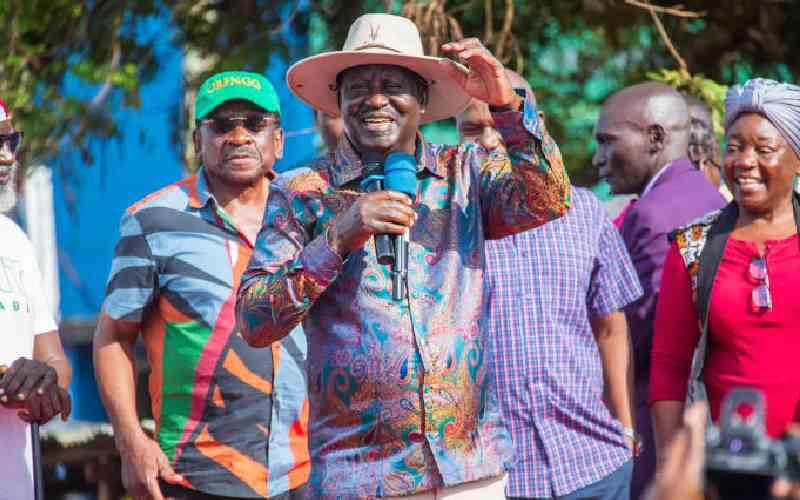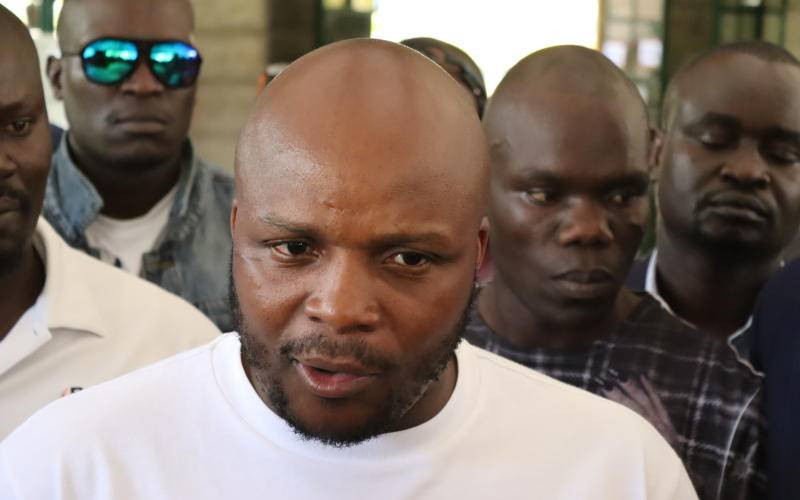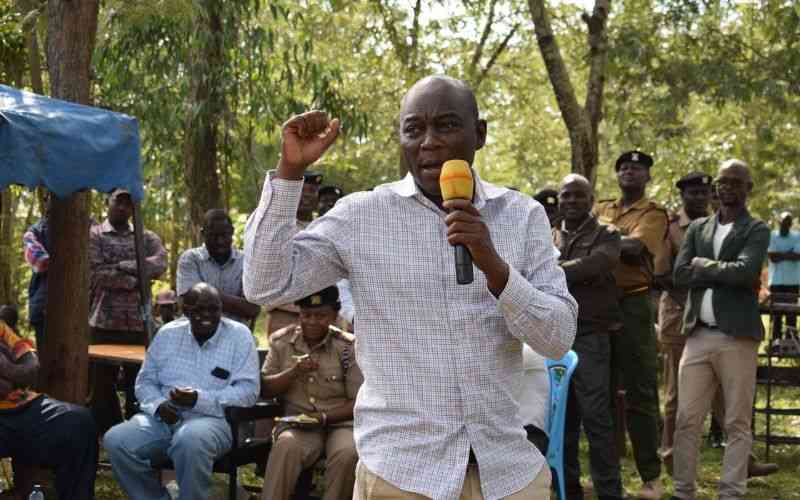 |
|
Nominated MP Zuleikha Hassan was recognised for her role in fighting for the rights of Muslim women. |
Tears flowed freely as nominated MP Zuleikha Hassan was declared the first Muslim Woman of the Year, an award sponsored by Gulf Bank Africa in partnership with Al Muslimah, a magazine exclusively dedicated to Muslim women.
The event, held at a Nairobi hotel a week ago, brought together the who’s who in Muslim women circles and offered them a chance to share experiences. Picked from a pool of 30 shortlisted professionals, Hassan, who was forced into politics by her father, didn’t hide her joy.
“Sincerely speaking, I never shed a tear when my mother died a few years ago, but this award means a lot to me: my achievements have been recognised,” said Hassan, who earlier had to be persuaded not to leave early. According to the editor of the magazine Rubina Rehman, Muslim women have always taken a back seat, with major programmes benefiting only men, even though both play an integral role. She noted that the award, which is only given to women under 40, targeted women in academia, media, NGOs, politics, law, sports, entrepreneurship and arts among others.
“We mostly focused on an all-round personality and because the lifestyle of a Muslim woman is more reserved, we were looking for positive things that Muslim women were doing for the community,” said Rehman. She noted that the MP received overwhelming nominations, which resulted in the award.
“Our society is male-dominated. Women are everywhere but their achievements are hardly highlighted...,” she said.
The 34-year-old Hassan, who was nominated by the Orange Democratic Movement (ODM) to represent the youth, has been on a mission to make Muslim women’s voices heard. Apart from forming women groups at her Mariakani home in Kwale County, Hassan is currently a crusader for wearing of the hijab by Muslim girls in schools.
She at one time raised the issue in Parliament when a school banned hijabs. “I am still following up on that matter; religious matters should not be politicised,” she said.
Though a staunch Muslim, Hassan was raised multi-culturally, something she says has given her an edge to understand the experiences and suffering of women from diverse backgrounds.
After attending Aga Khan Primary School in Mombasa and then Coast Academy before studying for O-levels in South Africa, Hassan did her A-levels at Legai high school in Botswana where her dad was an expatriate.
After high school, she went to the University of Cape Town in South Africa to study Social Science in Development and Social Transformation and graduated in 2005.
“After graduation, I decided to come back home to build my country. I tarmacked for long, forcing me to ask for a job from a family friend, Prof Mohammed Hyder, who was running a Muslim Civic Education Trust. Instead of employing me, he told me to do a research on the problems Muslim women were undergoing,” said the MP.
She conducted research on 56 women. When she took her findings to Prof Hyder, he told her to do something about the problems. She then formed a women’s group which expanded to 116 women.
With a membership fee of Sh20 and a monthly subscription of Sh10, the group expanded to 320, and then to 700 members within a month. When she got a job as a programmes officer at MEWA, an NGO dealing with social issues, the women’s group had already clocked 2,000 members. Her dad advised her to “convert the membership into votes”, but she refused.
“My father told me to vie for the 2007 elections...but I didn’t see myself as a politician,” she said.
But her father did not relent. She later became the ODM party delegate and a National Election Council (NEC) member. She was later elected by delegates as the national deputy youth leader, then as national youth coordinator in 2011, a platform she used to lobby for her nomination to the legislature.
Back at home in Kwale County, Hassan has been seen as the lone voice commenting on sensitive issues like the shooting of 13-year-old Kwekwe Mwandaza by police and the issue of youth radicalisation and insecurity.
Stay informed. Subscribe to our newsletter
 The Standard Group Plc is a
multi-media organization with investments in media platforms spanning newspaper
print operations, television, radio broadcasting, digital and online services. The
Standard Group is recognized as a leading multi-media house in Kenya with a key
influence in matters of national and international interest.
The Standard Group Plc is a
multi-media organization with investments in media platforms spanning newspaper
print operations, television, radio broadcasting, digital and online services. The
Standard Group is recognized as a leading multi-media house in Kenya with a key
influence in matters of national and international interest.
 The Standard Group Plc is a
multi-media organization with investments in media platforms spanning newspaper
print operations, television, radio broadcasting, digital and online services. The
Standard Group is recognized as a leading multi-media house in Kenya with a key
influence in matters of national and international interest.
The Standard Group Plc is a
multi-media organization with investments in media platforms spanning newspaper
print operations, television, radio broadcasting, digital and online services. The
Standard Group is recognized as a leading multi-media house in Kenya with a key
influence in matters of national and international interest.









